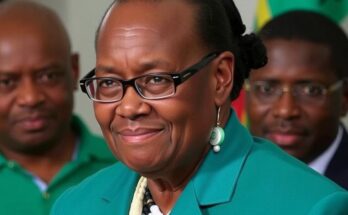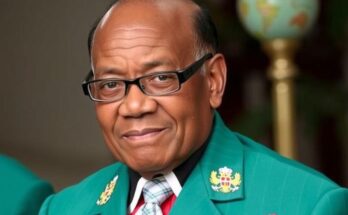The 2024 U.S. presidential election is being closely observed worldwide, with significant implications for global politics. A panel discussion at MIT involved experts from various regions who shared their insights on how their countries view American democracy. They highlighted a shift in perceptions and emphasized rising nationalism, populism, and the declining influence of the U.S. in favor of other global powers, notably China. Overall, the forum pointed to a complex web of international political dynamics shaped by American electoral outcomes.
The impending 2024 United States presidential election is anticipated to reverberate well beyond American borders, prompting a global examination of its implications. A recent discussions panel, titled “The 2024 US Presidential Election: The World is Watching,” convened at the Massachusetts Institute of Technology (MIT), wherein experts from various international political persuasions deliberated on the global perceptions surrounding this pivotal electoral process. The forum highlighted diverse perspectives from scholars specializing in African, Asian, European, and Latin American politics, offering nuanced insights into how their respective regions view American democracy. Evan Lieberman, Director of the MIT Center for International Studies (CIS) and Total Professor of Political Science, moderated the event. Katrina Burgess, a political economy professor at Tufts University, articulated a shifting perception of American democracy among the Latin American diaspora. She emphasized that, “American democracy is no longer perceived as a standard bearer,” and noted differing opinions within these communities regarding candidates’ stances on immigration, economic relationships, fossil fuels, and sustainable energy. Prerna Singh, Mahatma Gandhi Professor of Political Science at Brown University, provided a critique of India’s democratic integrity, stating, “Indian leaders don’t confer with the press,” which illustrates a departure from established democratic norms that Americans might endorse. She underscored an alarming trend towards an exclusionary nationalism that could steer India away from democratic governance. From an African perspective, John Githongo, the Robert E. Wilhelm Fellow at CIS, examined the crumbling influence of American soft power in the region. Githongo highlighted, “America’s soft power infrastructure in Africa is crumbling,” largely in favor of increasing Chinese investments, thus emphasizing the shifts in geopolitical allegiances. In European context, Daniel Ziblatt of Harvard University noted the rise of radical, anti-democratic sentiments reminiscent of phenomena observed in the United States. He remarked on the politically charged atmosphere marked by populist movements across Europe, particularly reflecting parallel trends in the U.S. The panel further engaged in a discussion evaluating the declining global investment in the outcome of the U.S. election compared to prior years. Although differing in views regarding political polarization’s global ramifications, panelists acknowledged an interconnectivity among nations regarding extremism and political movements. Githongo referenced a “trickle-down” effect where African nations adopt similar right-leaning ideologies, aligning with trends seen in American politics. Singh drew a pertinent analogy between American political divisions and the nuances of India’s caste system, revealing how caste dynamics could influence the Indian diaspora’s political behaviors in America. This forum not only underscored the depth of international scrutiny surrounding the 2024 U.S. election but also illuminated the complexities of global political interactions influenced by American democratic values and practices.
The discourse surrounding the 2024 United States presidential election reveals the profound global ramifications of American politics. Leaders and citizens across various regions are closely monitoring the electoral proceedings, as outcomes could significantly affect international relations, economic partnerships, and perceptions of democracy worldwide. Events such as the Starr Forum at MIT play a crucial role in facilitating discussions among experts who provide insights grounded in their understanding of regional politics, culture, and history, particularly about their views on American democratic norms and influences.
The discussions at the Starr Forum demonstrate a universal consensus on the evolving perceptions of American democracy and its role on the world stage. While some regions, such as Latin America and Africa, express a waning influence of U.S. political ideals, others, like Europe and India, face challenges within their democratic frameworks, often reflective of American trends. The 2024 presidential election thus serves as a pivotal moment in examining long-lasting implications of U.S. politics, both domestically and globally.
Original Source: news.mit.edu




